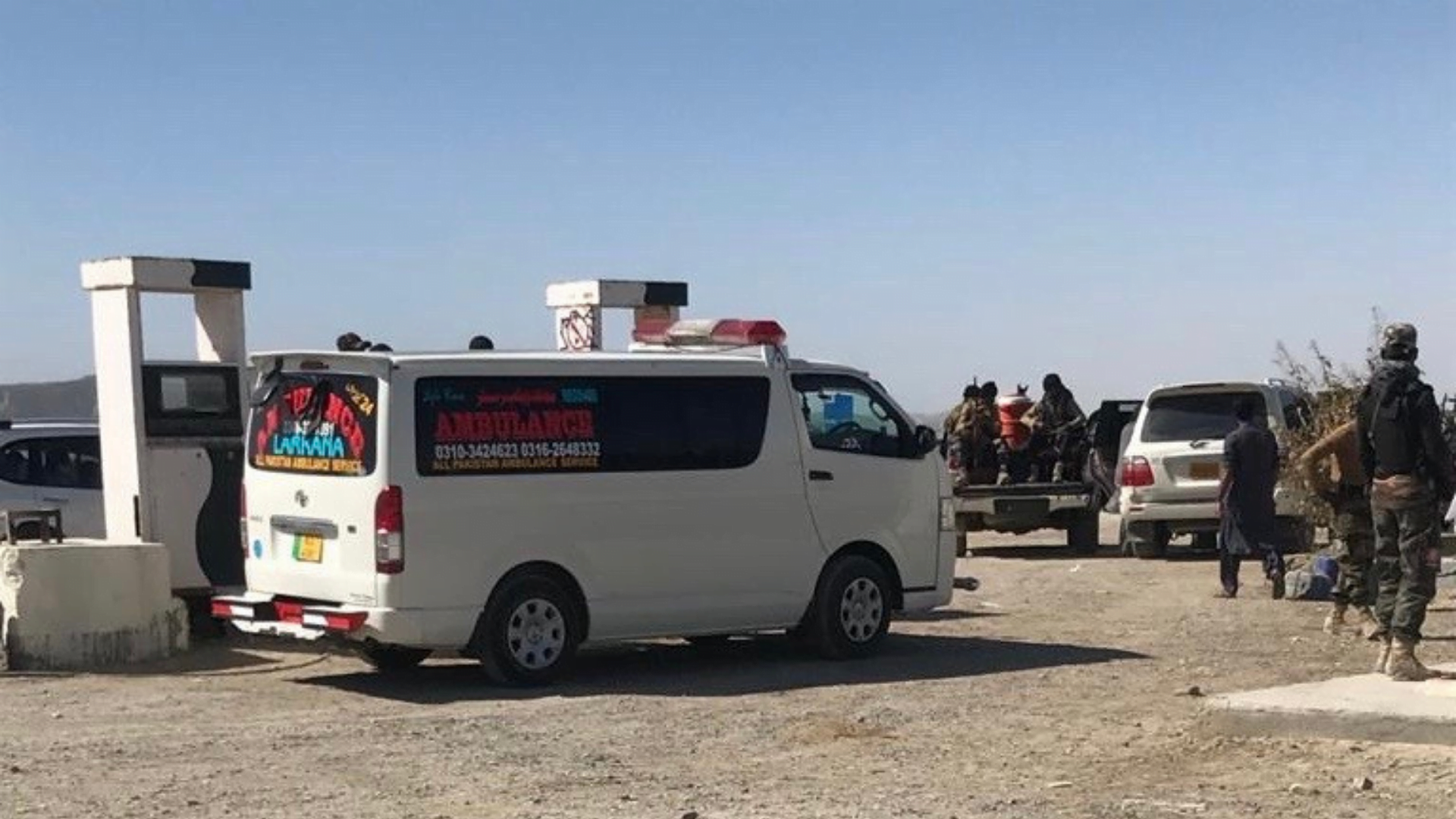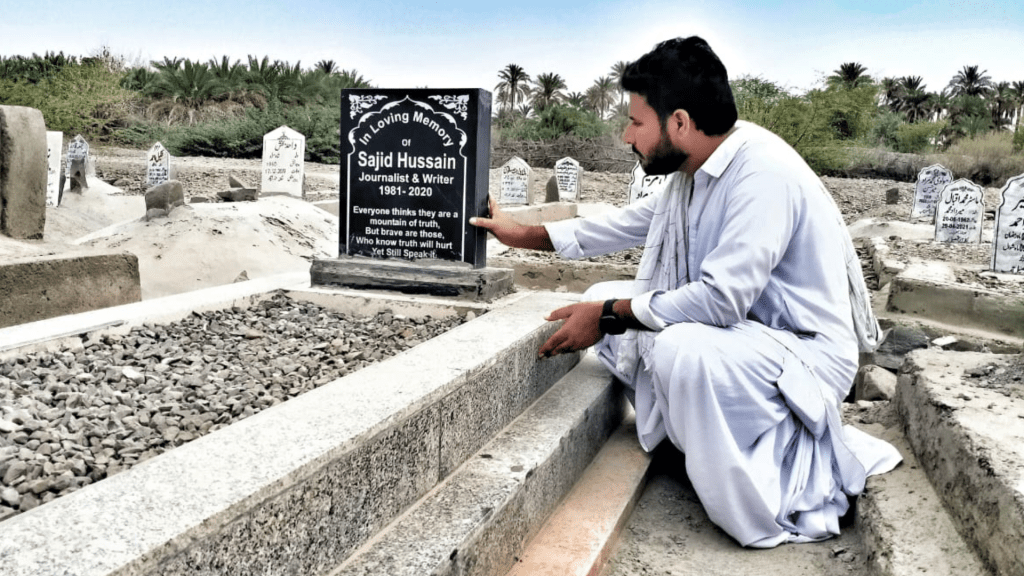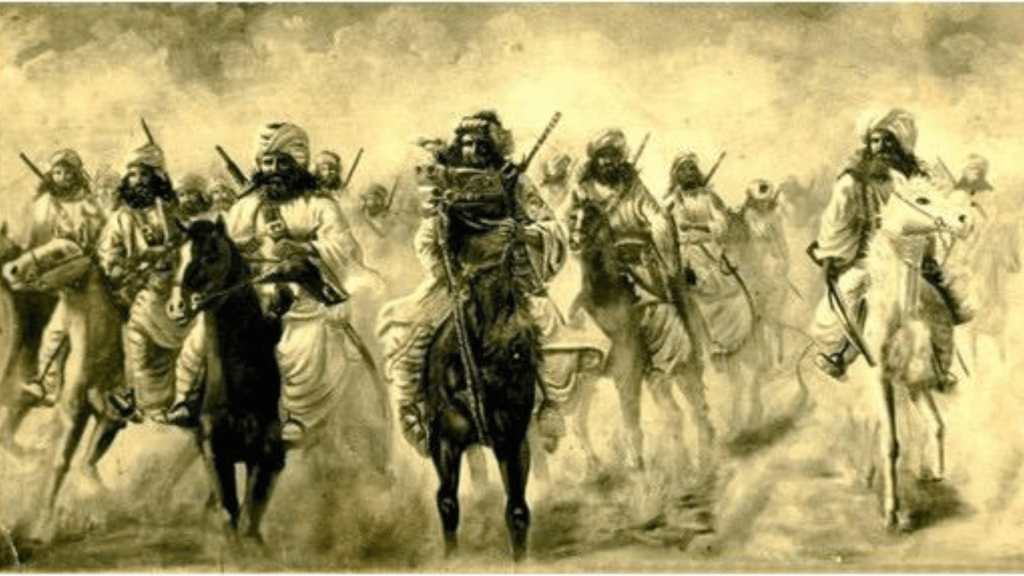When my mother and I went to the airport in 2015 to leave my sister Karima Baloch, I told her the next time she would return, thousands would welcome her. Thousands indeed did.
On January 24 this year, I could not believe I was going to the airport to receive the body of my beloved sister. I had slept little in the previous days. I kept thinking about the promise she had made to me five years ago that upon her return she would give me the tightest of hugs at the airport.
At 2 AM, an official from Karachi airport called to inform us that the plane carrying her body would arrive at 5 and not at 3:30 as my brother had told us it would. We feared the authorities were tricking us to make us late. We reached there at 3. We were made to wait at one counter after another. The airport looked like a warzone with all the additional security.
At 4, intelligence officials told us they would send us to Turbat by air. We did not want any favours from them. It was not a favour anyway. They wanted to abduct us, made us board a plane against our wish. They wanted Karima to be buried in silence and before the time we had announced. They threatened they would send the body back to Canada. They even said they would send her to Turbat without us and bury her in an unmarked grave. We still refused to travel by air. We had made travel arrangements ourselves and wanted the authorities to have no part in it.
Baloch activists had gathered outside the airport and were constantly asking us what was going on. After our protest, the officials showed us the coffin. One intelligence operative taunted us and said, “Now you know how powerful we are.”
They put the coffin in the ambulance we had hired and we were ordered to follow them. They snatched my mobile phone. Our car and the ambulance were accompanied by a few vehicles carrying police and agency officials. We did not know where they were taking us.
Once we were out of Karachi, they returned my mobile phone. Some Frontier Corps (FC) vehicles also joined us. When we reached near Windar in Balochistan, I noticed our convoy, which had been moving at great speed since we left the airport, slowed down. From then on, it was a slow drive until Tump. I did not know why the sudden change of speed, but later guessed that they wanted us to reach our hometown at night and not during the day. The reason I thought so was that when we reached, ISI officials tried to force us to bury her the same night.
Meanwhile, on the way, those who had tried to wait on roadsides to have a glimpse of the ambulance were ordered to leave. We saw FC soldiers beating up some people.
We requested them to stop for a few minutes so that we could offer prayer. They did not. My uncle, in his frustration, stopped his car, thinking the security vehicles would stop too. But, they did not, and even tried to force the ambulance driver to drive on. My uncle had to put his vehicle in front of the ambulance.
In Turbat, we saw activists pleading to FC soldiers to let them join our convoy. They were shooed away. A few cars that had been following us for a few kilometres to show respect to Karima were not allowed to get past the D-Baloch area in Turbat. At one checkpost, a kid dodged an FC sepoy and kissed the ambulance. The sepoy cursed him and chased him away.
In Rudbon, not far from Tump, FC soldiers at another checkpost stopped us yet again. An agency official told the soldiers to let us go. I was really confused by this point. They had abducted us from Karachi airport and were taking us like prisoners, but despite that soldiers had to stop the cars every few kilometres.
After a journey of 13 hours, we reached Tump at about 8 PM, to find out it was under siege. Our neighbourhood was completely surrounded by the FC. Moments after our car reached our home, ISI officials told us a grave had been dug and we had to bury Karima within half an hour. I went and sat in the ambulance and told them there was no way we were doing that. An FC sepoy pulled me out and hit me with the butt of his rifle. My family’s women protested, saying they should kill us all instead of this humiliation.
After this, the ISI official told us that the body should remain in the ambulance and that the funeral should be held at eight in the morning and not at midday as we had planned. We refused and took the coffin to the room that was once Karima’s. A few women stood guard at the door. I sat beside the coffin all night.
Karima had told me once that she wished to be buried wrapped in a Baloch Students Organisation flag. I took a few of those with me from Karachi but were snatched by the FC. I took someone’s red scarf and tore a piece from Karima’s shroud to make a BSO flag for her. In the morning, ISI officials told me to bury her wrapped in a Pakistani flag and make videos. Again, we refused.
During the funeral, the graveyard looked like a military cantonment with soldiers, some on rooftops, watching from all sides. The people present were family members and neighbours as those who wanted to come from other areas were not allowed to enter the town. They were at first not ready to let the women attend the funeral, they even asked the mullah to advise against that, but we insisted.
After the burial, the ISI officials ordered my family to leave Tump immediately. (We have been based in Karachi for long because our home has always been an FC target. They used to raid our home at least once a month when we were there.) We requested to let us stay for a few weeks as people would come for fateha but they said the entire area would remain under siege as long as we would remain there.
During the two days of the curfew in Tump, area people really suffered. A pregnant woman, who was in agonising pain, was not allowed to leave for Turbat for treatment. A boy who had broken a bone was not allowed to go to hospital.
We had no option but to leave for Karachi. We were chased out of our own home.
Mahganj Baloch is a human rights activist.



